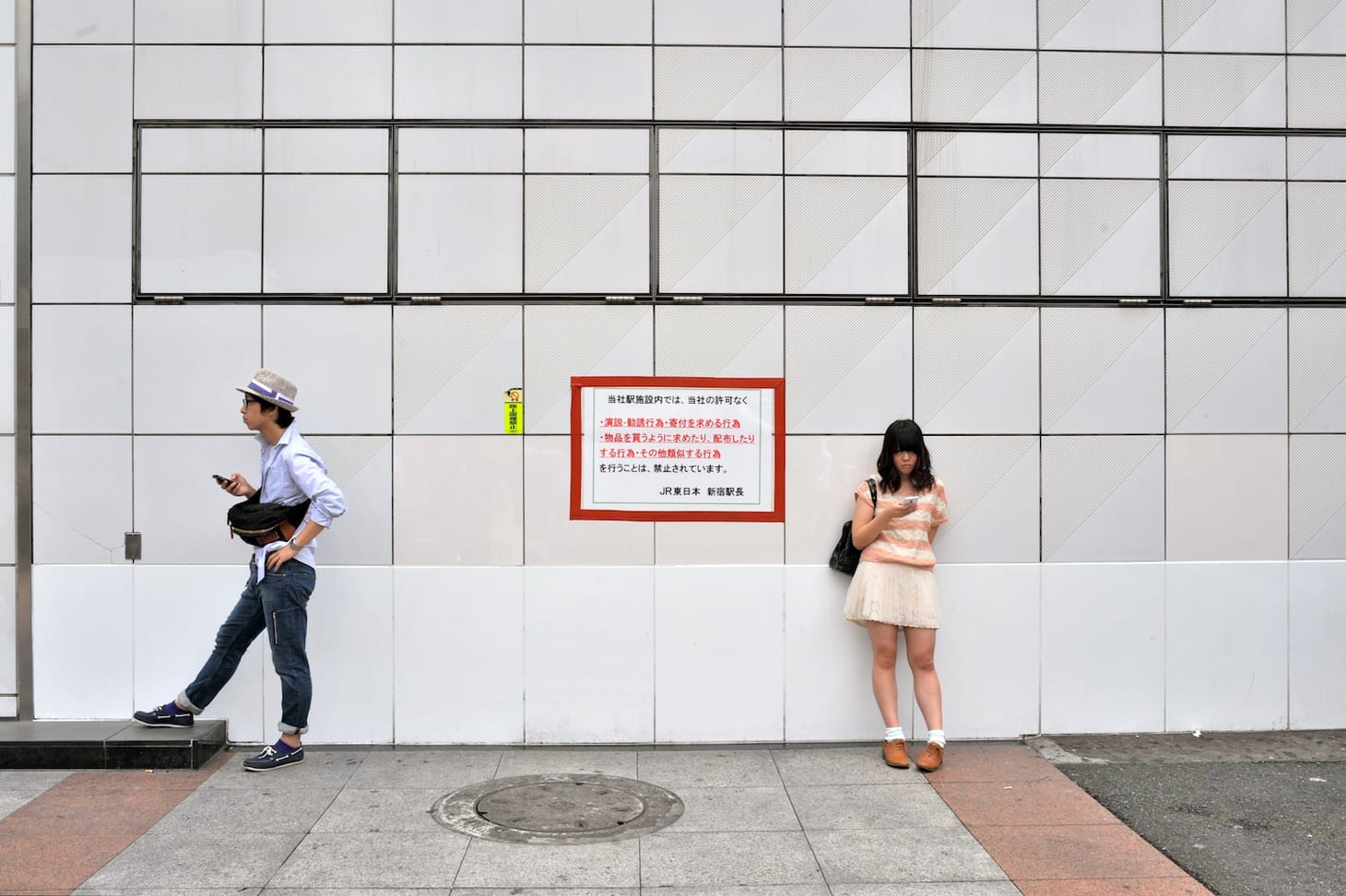Remote Is Not Enough
The next productivity boom will not come from robots doing more; it will come from humans doing less.

Japan is famous for hordes of "salarymen" and "office ladies" who spend way too much time at the office — or in the nearby bar — and are hardly ever home. It is also famous for having a remarkably low birth rate and a rapidly aging population.
Work and fertility are intertwined. Japan's declining birth rates have been blamed on long working hours, discrimination against female workers, and the lack of stable jobs for young men. Productivity seems to be the enemy of fertility.
But is it? An experiment at a giant Japanese company shows that the two can go hand in hand. As Bloomberg recently reported:
When Masahiro Okafuji became chief executive officer of Itochu Corp. in 2010, he made improving productivity a top priority so the company could compete against bigger rivals in Japan. His approach was counterintuitive. Working in the office after 8 p.m. would be banned, and there would be no more overtime—with rare exceptions. Security guards and human resources staff would scout Itochu’s office building in Tokyo, telling people to go home. Those clinging to their desk were told to come in early the next day to get their work done—and get paid extra.
The CEO's productivity gambit was successful:
A decade later, the company—whose businesses range from the FamilyMart convenience store chain to metals trading—reported a more than fivefold jump in profit per employee from 2010 to 2021 as surging commodities prices and a weak yen buoyed its bottom line.
But while employees became more productive, they also had more kids and kept working while raising them:
to the surprise of Itochu’s management... more female employees took maternity leave, had kids and came back to work... the fertility rate among full-time employees double[d]... reaching almost two children per female employee in the fiscal year ended March 31, 2022—far exceeding Japan’s current national rate of about 1.3.
Itochu has about 115,000 employees. After a decade of strict policy about when employees shouldn't work, the company managed to produce more stuff and produce more babies.

This story really hit home when I read it. I'm not sure the same strategy would work for all companies. But it is clear that most company policies are far from the optimal balance between life and work. And there are probably different "balances" that are optimal for different companies and employees.
The Itochu experiment also highlights what I believe is the next frontier of employee empowerment. Remote and hybrid work is going mainstream. The battle for "where" is being won — with employees showing bosses that they can (and like to) do their jobs away from the office, or from an office closer to home or in a completely different city or country. We now turn our attention to the battle for "when;" employees should and will fight to define more explicit boundaries around their personal time. As I wrote in 2021:
It is no coincidence that remote-first companies are the biggest advocates of asynchronous work. Letting your people choose where to work is only the first step. The logical next step is empowering them to decide when and how to work. This does not mean that employees don’t talk to each other or never meet. It means teams and individuals are empowered to work in new ways and that actual meetings and get-togethers are deliberate activities that are often more intense, enjoyable, and meaningful.
Most companies will not go this far and still require employees to be online at set hours. But employees, for their part, should also insist on clearly defined hours at which work will not be done under any circumstances. When everyone's talking about AI, perhaps the next wave of productivity will not come from robots doing more; it will come from humans doing less. Or both. (But humans might also make more babies)
Have a great Thursday.
Best,

I research technology's impact on how humans live, work, and invest.
💡Book a keynote presentation for your next offsite, event, or board meeting.
🚀 Sign up for the upcoming cohort of my Practical AI Course to master the latest tools for financial analysis, marketing, and business automation.
🔑 Become a Premium Subscriber to unlock subscriber-only content, online meetups, and more.
❤️ Share this email with a friend or colleague

Old/New by Dror Poleg Newsletter
Join the newsletter to receive the latest updates in your inbox.




